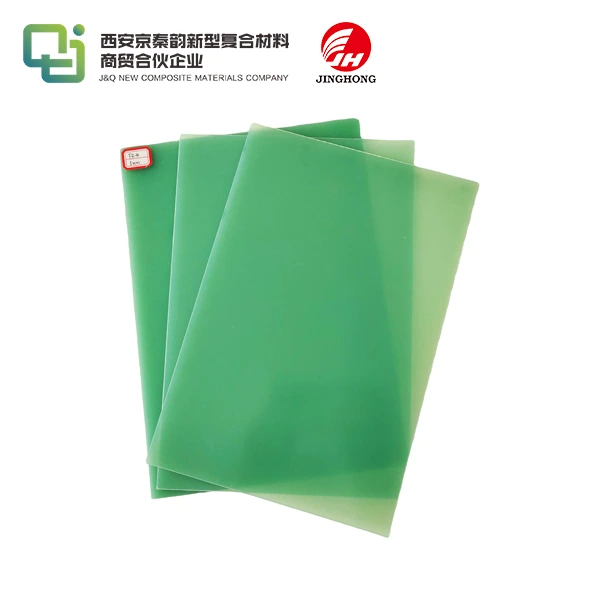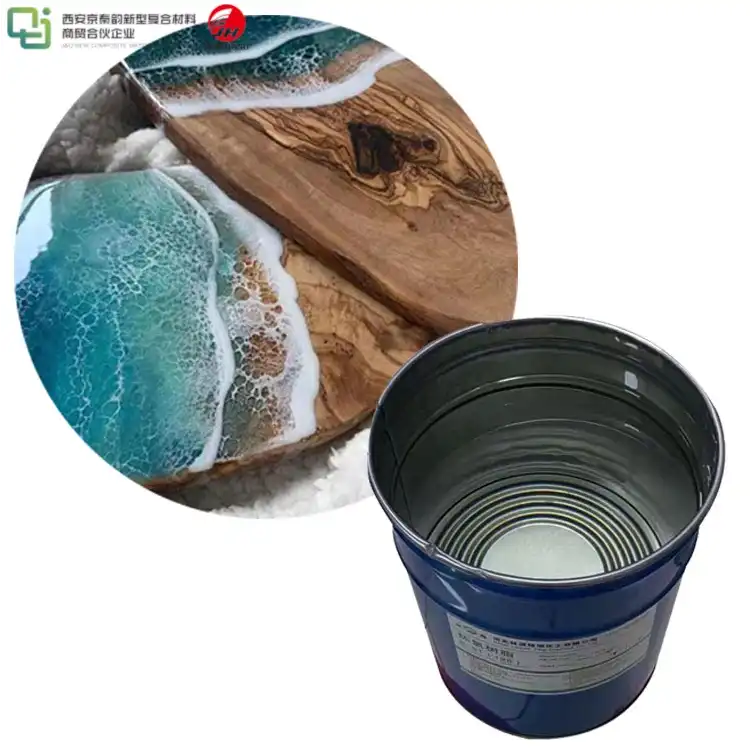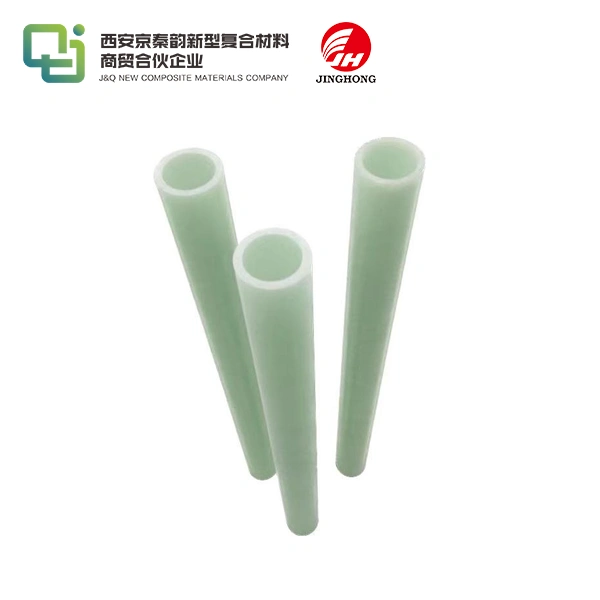What is an Epoxy Resin Sheet
2024-05-09 10:30:02
What is the use of epoxy sheet
Epoxy Resin Sheet, frequently alluded to just as epoxy sheets, are strong boards or covers made fundamentally out of epoxy tar. These sheets are supported with materials like fiberglass, carbon fiber, or aramid strands to upgrade their mechanical strength and inflexibility.The epoxy resin acts as a matrix that binds the reinforcing fibers together, resulting in a composite material with superior performance characteristics.
It possess a diverse array of properties that make them indispensable across various industries. Understanding these properties and their corresponding uses provides valuable insights into the versatility and applicability of it in modern manufacturing and engineering processes.
Mechanical Strength: the sheets exhibit excellent mechanical strength, offering high tensile, compressive, and flexural strength properties. This makes them ideal for structural applications where durability and load-bearing capabilities are paramount.
Substance Obstruction: Epoxy tar sheets are profoundly impervious to a large number of synthetic compounds, including acids, bases, solvents, and fills.This chemical inertness makes them suitable for environments where exposure to corrosive substances is a concern, such as chemical processing plants or laboratory equipment.
Printed Circuit Boards (PCBs):the sheets are widely used as substrate materials for manufacturing PCBs due to their superior electrical insulation properties and mechanical stability. They provide a reliable platform for mounting and interconnecting electronic components.
Insulating Layers:the sheets are employed as insulating layers between conductive traces on PCBs to prevent electrical shorts and ensure reliable circuit performance. They offer high dielectric strength and low electrical conductivity, crucial for maintaining signal integrity and preventing leakage currents.
Transformer and Motor Insulation:the sheets are utilized as insulation materials in transformers, motors, and other electrical devices to protect winding coils and core components from electrical breakdown. They provide thermal stability, resistance to moisture, and compatibility with impregnation processes for enhancing insulation performance.
Encapsulation and Potting:Electronic Component Encapsulation:the sheets are used for encapsulating sensitive electronic components such as integrated circuits (ICs), sensors, and semiconductor devices. Encapsulation protects these components from environmental factors, mechanical shock, and moisture ingress, ensuring long-term reliability and performance.
Potting of Electrical Assemblies:the sheets are employed for potting electrical assemblies and connectors to provide mechanical support, strain relief, and protection against vibration and thermal cycling. Potting compounds filled with epoxy resin enhance thermal conductivity, improve heat dissipation, and extend the lifespan of electronic assemblies.
Insulation Systems:High-Voltage Insulators:The sheets are utilized in the fabrication of high-voltage insulators for electrical transmission and distribution systems. They offer excellent creep resistance, surface hydrophobicity, and resistance to tracking and corona discharge, ensuring reliable insulation performance under harsh environmental conditions.
Busbar Insulation:They are applied as insulation barriers and support structures for busbars in power distribution systems. They provide electrical isolation between conductive busbars, prevent short circuits, and mitigate the risk of arcing faults, enhancing overall safety and reliability.

What are epoxy resins used for?
Epoxy resins are versatile materials with a wide range of applications across various industries. Their unique combination of properties makes them indispensable in numerous manufacturing, construction, and consumer products. Let's explore the diverse uses of epoxy resins.
Structural Adhesives:Epoxy resins are commonly used as structural adhesives in industries such as automotive, aerospace, and construction. They bond metal, composite, and plastic components with high strength and durability.
Sealants:Epoxy-based sealants are utilized for sealing joints, cracks, and gaps in buildings, bridges, and concrete structures. They provide waterproofing, weatherproofing, and chemical resistance in various construction applications.
Electrical Insulation:Epoxy resins are employed as insulation materials for electrical components, transformers, and power distribution systems. They offer high dielectric strength, low electrical conductivity, and resistance to thermal aging and environmental factors.
Importance of Electrical Insulation:Electrical insulation is crucial for preventing the flow of electric current between conductive components and ensuring the safe operation of electrical systems. Insulation materials protect against electrical shocks, short circuits, and equipment failures.
Requirements for Insulation Materials:Insulation materials must exhibit high dielectric strength, low electrical conductivity, thermal stability, mechanical durability, and resistance to environmental factors such as moisture, chemicals, and temperature extremes.
Dielectric Properties:The sheets offer excellent dielectric properties, including high dielectric strength and low dielectric constant. This enables them to effectively withstand high voltages without electrical breakdown, making them suitable for insulation in high-voltage applications.
Thermal Stability:Epoxy Resin Sheet demonstrate thermal stability over a wide temperature range, ensuring that insulation properties remain intact even at elevated temperatures. This thermal resistance is essential for electrical components operating in demanding thermal environments.
Mechanical Strength:It possess high mechanical strength and dimensional stability, providing structural support and protection for delicate electrical components. They can withstand mechanical stress, vibrations, and impacts encountered during handling and operation.
Chemical Resistance:It exhibit resistance to chemicals, oils, solvents, and moisture, which helps maintain insulation integrity and performance in harsh operating conditions. This chemical resistance extends the lifespan of electrical components and reduces the risk of insulation degradation.
Insulating Bushings and Sleeves:They are used to manufacture insulating bushings, sleeves, and spacers for electrical cables, wires, and connectors. These components provide electrical isolation, support, and protection against electrical arcing and flashover.
Transformer Insulation:they are employed as insulation materials in transformers to insulate winding coils, core assemblies, and high-voltage terminals. They offer dielectric insulation, thermal conductivity, and mechanical reinforcement for efficient energy transfer and voltage regulation.
Capacitor Encapsulation:they are utilized for encapsulating capacitors and other electronic components to provide electrical insulation, moisture protection, and mechanical reinforcement. Encapsulation enhances component reliability and performance in diverse electronic circuits and systems.
Electrical Enclosures and Housings:They are used to fabricate enclosures, housings, and covers for electrical panels, switches, and control devices. These enclosures provide electrical insulation, environmental protection, and safety for enclosed electrical components and wiring.
Contact us
Are you looking for a reliable supplier of Epoxy Resin Sheets? Look no further! We are a professional manufacturer with a GMP-certified factory, boasting a large inventory and comprehensive certifications. We support OEM orders and offer fast delivery with secure packaging. Partner with us for your epoxy resin needs. Contact us at info@jhd-material.com.
References
- "Epoxy Resins." BYK. https://www.byk.com/en/additives/technologies/epoxy-resins/
- "Epoxy Resins." Hexion. https://www.hexion.com/en-us/chemistry/epoxy-resins-and-systems
- "Epoxy Resin Applications: What You Can Do with Epoxy Resin." Resin Crafts Blog. https://resincraftsblog.com/epoxy-resin-applications/
- "Introduction to Epoxy Resin Applications." AOC Aliancys. https://www.aocaliancys.com/blog/2019/09/12/introduction-to-epoxy-resin-applications/







